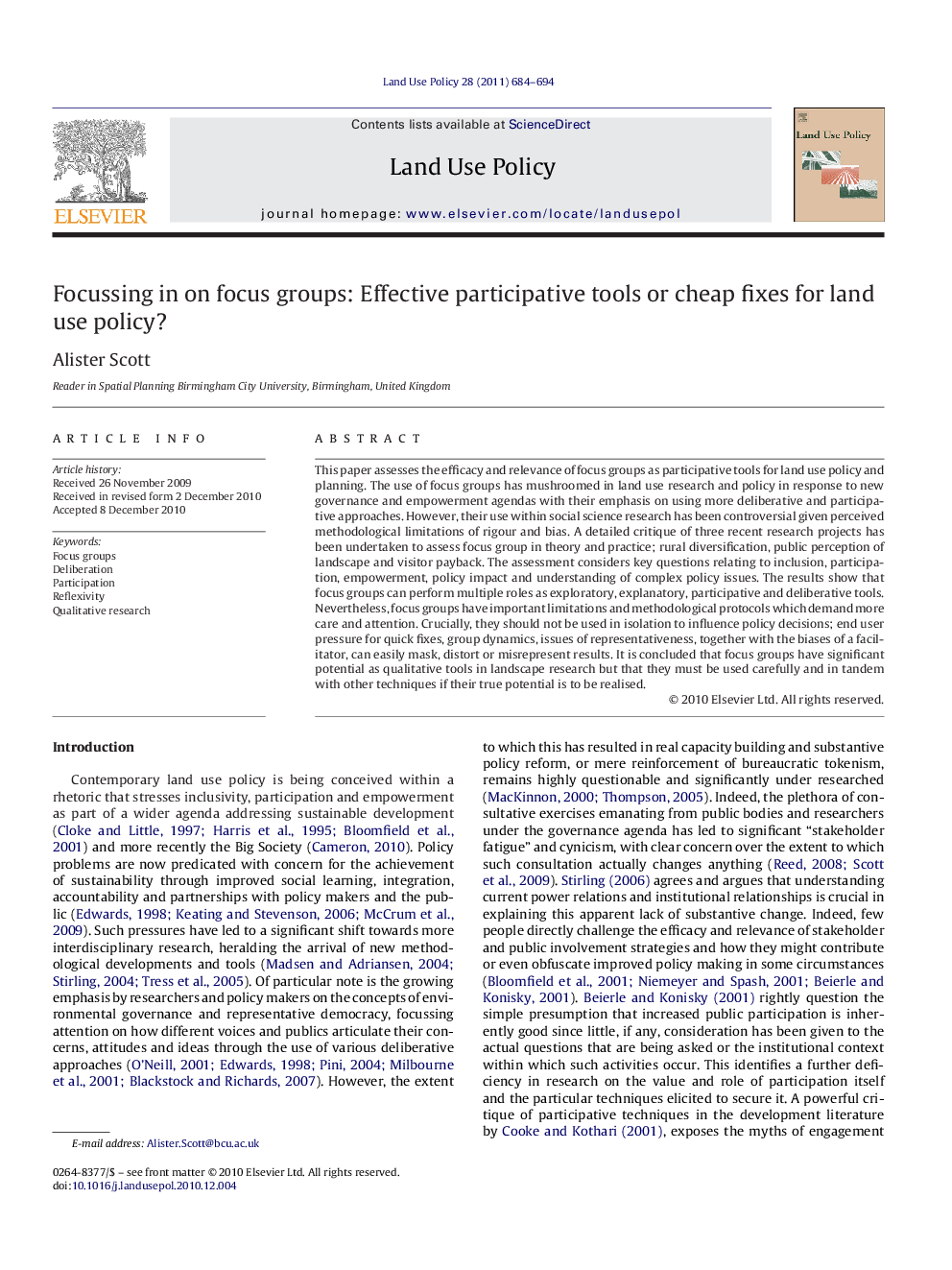| Article ID | Journal | Published Year | Pages | File Type |
|---|---|---|---|---|
| 93350 | Land Use Policy | 2011 | 11 Pages |
This paper assesses the efficacy and relevance of focus groups as participative tools for land use policy and planning. The use of focus groups has mushroomed in land use research and policy in response to new governance and empowerment agendas with their emphasis on using more deliberative and participative approaches. However, their use within social science research has been controversial given perceived methodological limitations of rigour and bias. A detailed critique of three recent research projects has been undertaken to assess focus group in theory and practice; rural diversification, public perception of landscape and visitor payback. The assessment considers key questions relating to inclusion, participation, empowerment, policy impact and understanding of complex policy issues. The results show that focus groups can perform multiple roles as exploratory, explanatory, participative and deliberative tools. Nevertheless, focus groups have important limitations and methodological protocols which demand more care and attention. Crucially, they should not be used in isolation to influence policy decisions; end user pressure for quick fixes, group dynamics, issues of representativeness, together with the biases of a facilitator, can easily mask, distort or misrepresent results. It is concluded that focus groups have significant potential as qualitative tools in landscape research but that they must be used carefully and in tandem with other techniques if their true potential is to be realised.
Research highlights► Focus groups are used extensively but uncritically in research and policy concerning land use matters activity. ► Three focus group studies critically reviewed. ► Use of authors own experience in design and delivery form the core component of this piece. ► Focus groups need to be used more critically in land use policy and in combination with other approaches.
